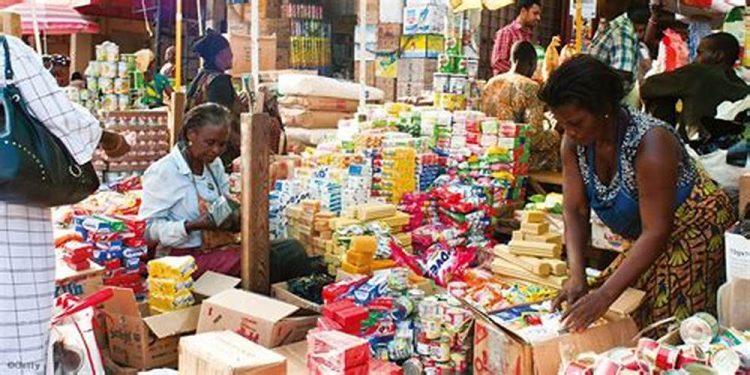By Hassan Osman Kargbo
Street trading is a vibrant and essential part of the informal economy in Sierra Leone, providing livelihoods for thousands of individuals and contributing to the nation’s economic activity. Despite its significance, street trading often faces a myriad of challenges, ranging from regulatory hurdles to social stigma, yet it continues to thrive and adapt in the face of adversity.
The Role of Street Trading in the Economy
In Sierra Leone, street trading encompasses a wide range of activities, including the sale of food, clothing, household items, and other goods. The sector plays a critical role in the economy, especially in urban areas like Freetown, where unemployment rates remain high. For many individuals, particularly women and youth, street trading serves as a vital source of income. It allows traders to engage in entrepreneurial activities with relatively low barriers to entry, as the initial capital required is often minimal.
Street traders contribute to the economy by fulfilling the demand for goods and services in their communities. They provide accessible products to consumers who may not have the means to shop at formal retail outlets. Additionally, street trading helps stimulate local economies, as traders often source their goods from local producers and suppliers.
Challenges Faced by Street Traders
Despite its contributions, street trading in Sierra Leone is fraught with challenges. One of the most significant issues is the lack of regulation and legal recognition. Many street traders operate in a grey area, often facing harassment from law enforcement officials who may see their activities as illegal. This creates an environment of uncertainty, where traders can be subjected to frequent evictions or confiscation of their goods.
Moreover, street traders often lack access to basic amenities such as clean water, sanitation, and waste disposal facilities, which can lead to poor health outcomes. The absence of infrastructure also hampers their ability to operate efficiently, as they may be forced to work in congested and unsanitary conditions.
Another pressing challenge is the economic volatility that can affect street traders disproportionately. Fluctuations in market prices, changes in consumer behavior, and disruptions caused by external factors such as the COVID-19 pandemic can severely impact their livelihoods. During the pandemic, many traders faced significant declines in sales, with some forced to close their businesses altogether.
Social Stigma and Gender Dynamics
Street trading is often stigmatized, with societal perceptions framing it as a last resort for those unable to secure formal employment. This stigma can discourage aspiring entrepreneurs from pursuing street trading, despite its potential for income generation. Furthermore, women comprise a significant portion of street traders, and they often face additional challenges related to gender inequality. Women traders may encounter discrimination, limited access to resources, and societal pressures that hinder their ability to thrive in the marketplace.
Opportunities for Empowerment and Growth
Despite these challenges, there are opportunities for empowerment and growth within the street trading sector. Non-governmental organizations (NGOs) and community groups are increasingly recognizing the importance of supporting street traders. Initiatives aimed at providing training in financial literacy, business management, and marketing can help traders develop their skills and improve their operations.
Furthermore, creating formalized markets for street traders can enhance their legitimacy and provide them with the infrastructure needed to operate more effectively. Local governments can play a pivotal role by developing designated trading zones that offer traders access to essential services while ensuring compliance with regulations.
The Path Forward
To harness the potential of street trading in Sierra Leone, a collaborative approach is necessary. Policymakers, community leaders, and traders themselves must work together to create an enabling environment that recognizes the contributions of street traders to the economy. This includes developing policies that protect their rights, provide access to resources, and promote their interests.
Encouraging dialogue between street traders and local authorities can help address issues of regulation and support. By acknowledging the role of street trading as a legitimate economic activity, stakeholders can foster an atmosphere of cooperation rather than conflict.
Conclusion
Street trading is an integral part of Sierra Leone’s economy, offering livelihoods and fostering entrepreneurship among many individuals. While it faces significant challenges, including legal uncertainties, social stigma, and economic volatility, there are numerous opportunities for growth and empowerment. By investing in the sector and creating supportive policies, Sierra Leone can harness the full potential of street traders, contributing to a more inclusive and resilient economy.













